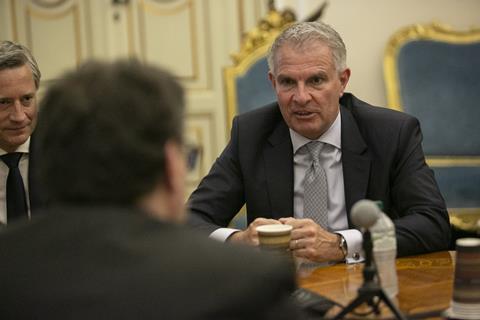Lufthansa Group chief executive Carsten Spohr insists the carrier will make a rational decision over the cost of any concessions required for approval of its planned acquisition ITA Airways, but is encouraged by the approach to global competition of the incoming European Commission.
The European airline group agreed a deal in May last year to take an initial 41% stake in the Italian carrier, together with an option to acquire full control, and had initially hoped to secure Commission clearance for the deal by the end of 2023.

However despite submitting some initial remedies to address potential competition concerns, the Commission in January said these were “insufficient, in terms of both scope and effectiveness” and launched an in-depth probe of the deal.
“We are also making progress with the takeover of ITA Airways, even though slower than planned,” said Spohr, speaking during a full-year results conference call on 7 March. ”We are continuing our intensive dialogue with the European Commission to obtain approval for the transaction as soon as possible.
“We don’t do ITA like we go to an Italian restaurant, this is a business case for us,” adds Spohr. ”We have very well analysed how much value this can create for our shareholders over the next years and potential remedies – which of course will have costs attached. Like buying an airplane, or closing down a plant at [Lufthansa] Technik or opening one up because of a business case, we will take a decision.
”We will look at this in a very rational way,” he adds, noting the group has experience of previous acqusitions such as Austrian Airlines, Brussels Airlines and Swiss International Air Lines.
“And then we see if we have a deal. Brussels knows that. Rome knows that. I think more and more people in Brussels understand that our European industry wants to maintain its global competitiveness.”
Indeed Spohr takes some encouragement from the incoming Commission, which will take office when the term of the current Commission ends in October.
”I think the political environment is helping us. The new EU Commission is much more focused on European competitiveness than the current Commission,” says Spohr. ”Of course you only see the first developments there, so I will not give up my optimism that we come up with a solution that is good for Italy, for Lufthansa and the Italian customers.”
He adds: ”Small airlines like ITA need a home and the three big ones need an inorganic chance to expand, beyond getting [organic] opportunities where they exist. That I think is the future of the decision of ITA.”


























